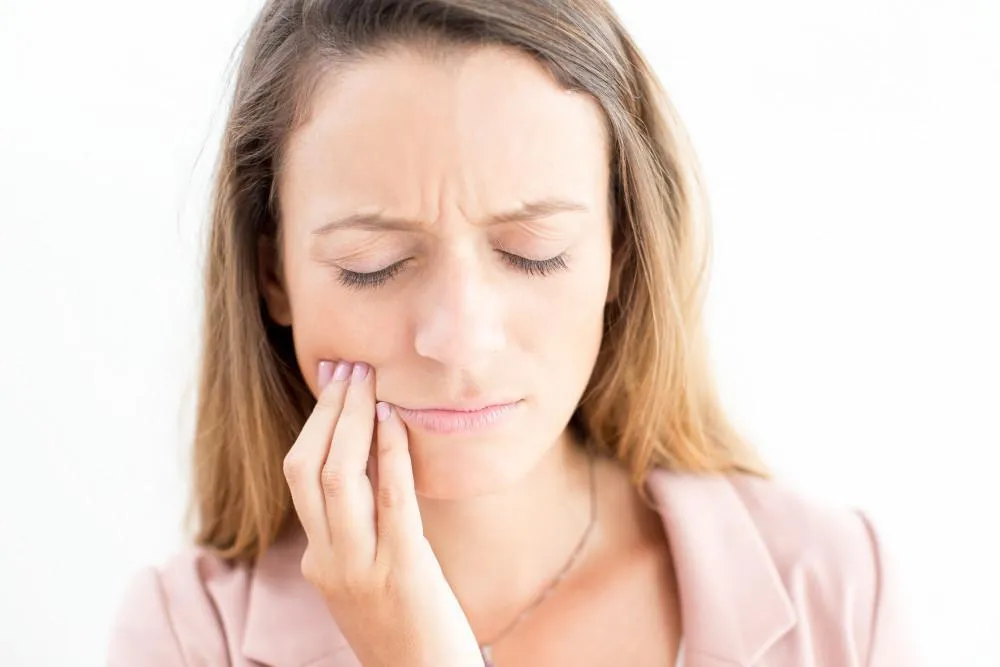An abscess is a pus-filled pocket caused by a bacterial infection. An abscess can form anywhere on your body, including in or around the root of an infected tooth. An abscessed tooth can be excruciatingly painful.
When you have a broken, chipped, injured tooth, or gum decay, a tooth abscess can form. Bacteria can enter the pulp, or root, through openings in your enamel and form pockets of infection that swell with pus. This could result in a toothache. A serious infection can spread to other pulp and into your jawbone.
A tooth abscess is not the same as a gum abscess. Despite the fact that both are pockets of bacterial infection that cause pain and other symptoms, a tooth abscess begins in the pulp or root. It then exits from the apex of the tooth, at the bottom of the root.
Symptoms of a tooth abscess:
- Pain in the infected tooth that does not go away.
- Bitter taste.
- Halitosis, or bad breath.
- discomfort, sickness, or uneasiness
- Fever.
- A tooth becomes darker in color than the surrounding teeth, indicating a root change.
- Chewing causes pain, especially on one side of the mouth.
- Heat or cold sensitivity
- Swelling in the gum around the infected tooth, which may resemble a pimple.
- Neck lymph nodes or glands that are swollen.
- Upper or lower jaw swelling near the infected tooth. This is a serious symptom that necessitates medical attention.
tooth abscess- treatment
The best way to treat an abscess is with the assistance of a dentist. Once your dentist has diagnosed you with an abscessed tooth
- Treating an abscessed tooth begins with removing the source of the infection. This can happen in stages.
- A deep cleaning may be performed to open the tooth and remove the infected contents.
- In order to relieve pressure and remove pus, your doctor may make an incision or create a drainage point on the soft tissue.
- Following the removal of the pus, your endodontist may perform a root canal to clean out and seal the space.
- If the pulp is severely damaged, the tooth may need to be extracted.
- Following that, you will have regular dental examinations, possibly every four to six months, to manage a severe infection.
- If you have a tooth extracted or a root canal, you will need to see your dentist in a few months to get a dental implant or a crown for the root canal.
Adding the following treatments to your dentist’s treatment plan can help you manage pain:
- You could be given a prescription for oral antibiotics for one to two weeks. Acute oral infections usually resolve in three to seven days.
- Warm salt water rinses.
- To reduce inflammation, apply a warm, moistened tea bag compress.
- Avoiding sharp or hard foods that can pierce your gums or damage your tooth enamel.
- To reduce the risk of infection, you should also maintain your dental hygiene on a long-term basis.
- Foods and beverages that are either too hot or too cold should be avoided.
- Reduce your sugar intake and alcohol consumption.
- Do not Floss the area where the abscess was until your treatment is finished.
- Use a soft toothbrush to reduce the risk of opening your gums to infection.
How alignment can aid in the prevention of Tooth abscess:
If you have crooked teeth, an overbite or underbite, or gaps in your teeth, cleaning all of the surfaces of your teeth can be difficult. Food particles and plaque buildup may be more likely to accumulate in difficult-to-reach areas of your teeth.
When your teeth do not fit together properly, you are more likely to crack them and damage the enamel from clenching or grinding them. Straightening your teeth can help you reduce or avoid getting an abscessed tooth. Consider this a step forward after you’ve received proper care for your misaligned teeth.


